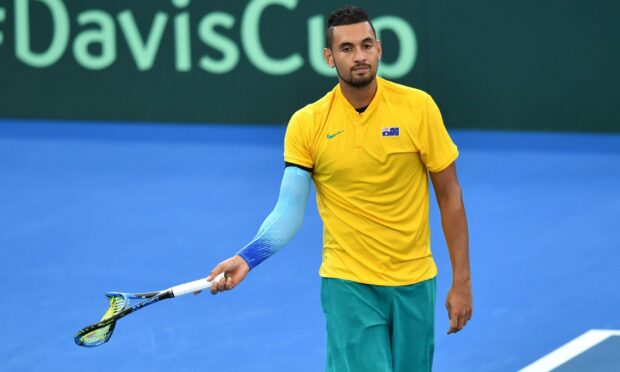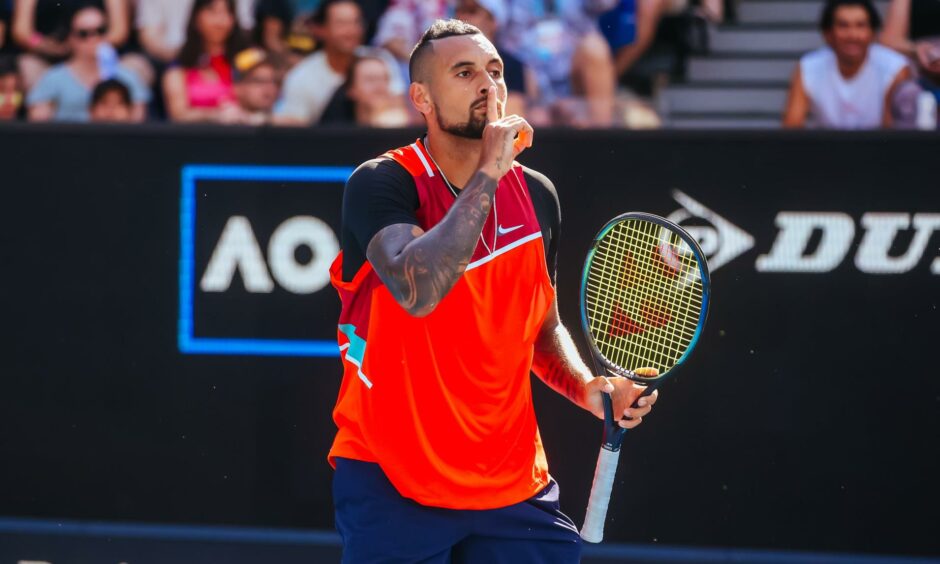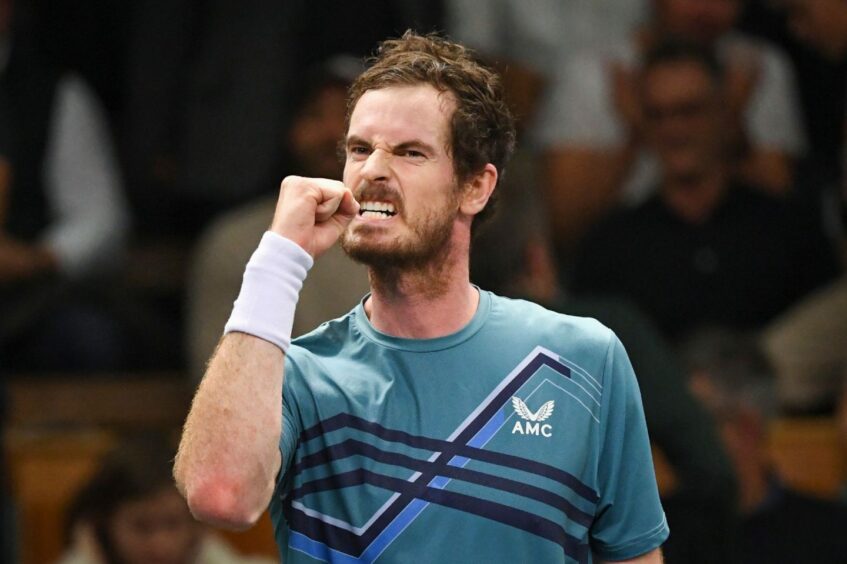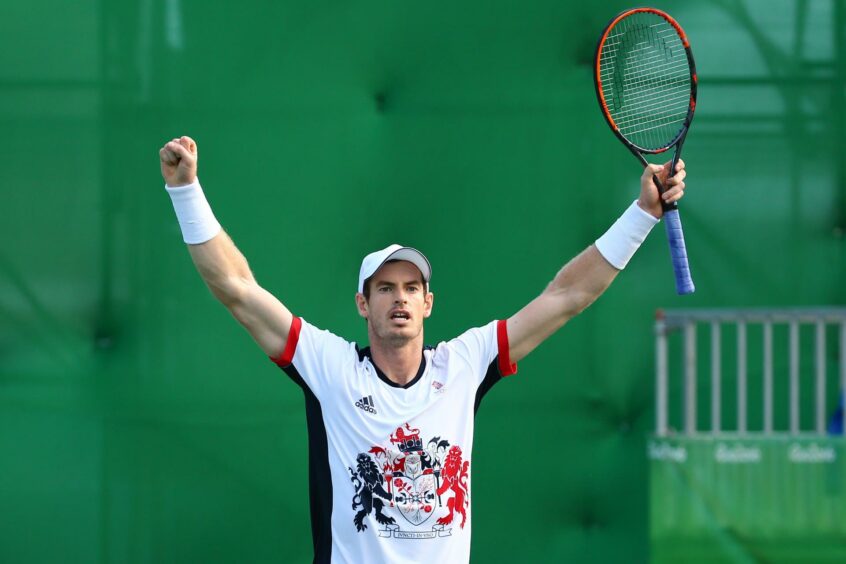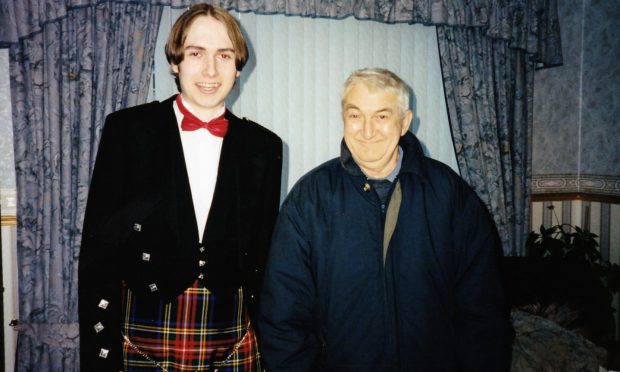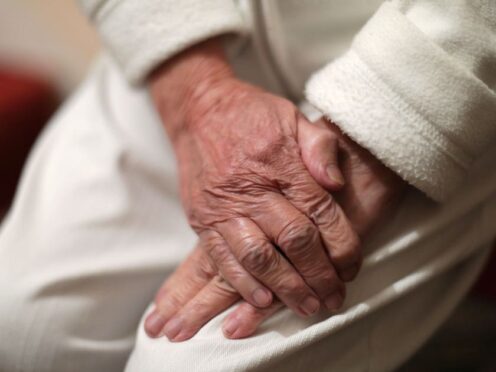With on-court outbursts becoming increasingly common, an Aberdeen sports psychologist says players should be looking to the likes of Andy Murray for inspiration.
German tennis player Alexander Zverev was recently kicked from the Mexican Open after shouting at the umpire and attacking their chair.
Elsewhere Nick Kyrgios was fined £19,000 at a tournament in California for almost hitting a ball-boy while smashing his racket.
He later got into more trouble in Miami for a similar violent outburst.
Nick Kyrgios threw his racket on the court after surrendering a break point.
He then raised his middle finger in the direction of the Australian Open crowd. pic.twitter.com/woS9R585kr
— ESPN (@espn) January 27, 2022
These issues are nothing new, of course – with many having vivid memories of John McEnroe’s “you cannot be serious” outburst at Wimbledon 1981.
But are these issues purely down to passion while playing – or is there something more?
How do sports stars keep their emotions in check?
Aberdeen sport psychology consultant Nick Frost says trying to bottle up emotions on the court is “totally” the wrong approach.
He explained: “Instead of trying to control emotions, which often leads to avoidance and not doing things, we kind of practice what’s called emotional flexibility.
“We acknowledge the emotion, we accept the emotion and then you continue to do what matters – not avoiding, (but) stepping up and doing what you need to do.”
In fact, trying to keep a handle on your feelings can often make the situation worse.
“For example, if you start to get anxious as you prepare for a match and you’re trying to get rid of it, that’s when you have problems,” Nick explained.
“You can’t get rid of what your body does.”
How anger can ruin your game
Nick says emotions like anger can work in some cases – with the aggression helping the player to focus on what’s coming next.
But at other times it’s a distraction, putting you off your game and even affecting your motor skills.
He encourages people to be self-aware when their emotions start getting the better of them.
“Work with the team and recognise what values you have as a player and when you shift away from those values,” he added.
“Giving the ball away because you’ve got angry, for example, that’s not aligned with your values.
“If you’re in a traffic jam or someone cuts you up, how are you going to get to the end of the queue by being angry?
“You’re not, you’re going to get to the end and be in an even worse emotional state than you were before.”
Alexander Zverev has been THROWN OUT of the Mexican Open for attacking the umpire's chair at the end of his doubles match 😮😮😮 pic.twitter.com/CWhQ1r6kwj
— Amazon Prime Video Sport (@primevideosport) February 23, 2022
How can you prevent on-court meltdowns? Be more like Andy Murray
Nick stresses the importance of remembering you’re still the “same person” after a match or game – and not burdening yourself with too much expectation.
He said: “Have this unconditional acceptance that no matter what you do, you’re still the same person before and afterwards.
“If you have irrational beliefs you ‘must always do this’ then the likelihood is you’re going to hit a point where you don’t actually meet those expectations.
“In his early years, Andy Murray always had this irrational belief that he had to win Wimbledon, he had to win a major, these massive demands.
“When you saw his game, he was angry because he didn’t achieve this.
“Then he had an intervention with a sport psychologist to rationalise his beliefs to ‘I really want to achieve this, but if I don’t, I’m still going to be a top five player’.
“There was a transformation straight away. He won the Olympics and then he won Wimbledon,” Nick said.
Murray went on to become a two-time Olympic champion, first in 2012 and then again in 2016.
He also won his first major at the US Open in 2012 before winning Wimbledon twice.
Nick also praised the mentality of 21-time grand slam winner Rafael Nadal, calling him a perfect example of how someone can manage their expectations.
He said: “Rafael Nadal is always famously quoted: ‘I’m a father and a husband before I’m a tennis player and if I lose this match, I’ll still go home to my family’.
“That’s what he’d always say and that allowed him to perform at his best because he didn’t place these unrealistic demands.”
Read more:
More than one million girls have ‘fallen out of love’ with sport
Nick Kyrgios reveals mental health fight that left him with ‘suicidal thoughts’
‘Anyone can be affected’: Call for others to learn from Olympian Simone Biles
